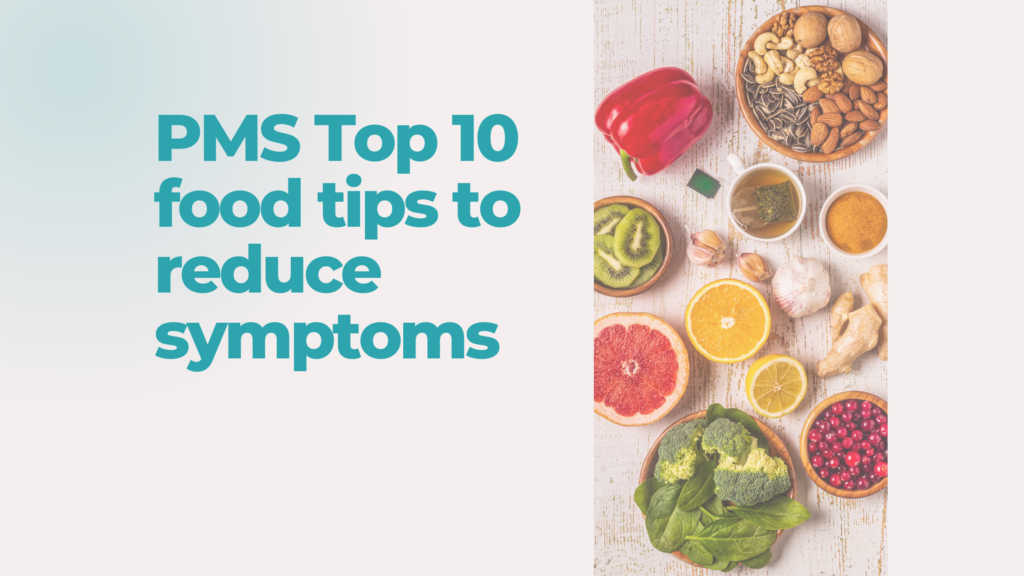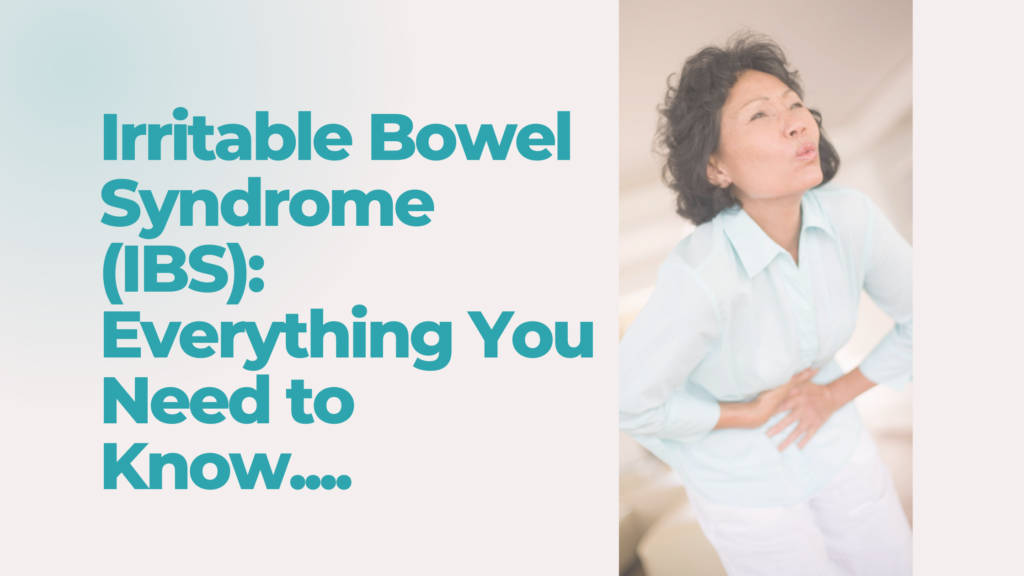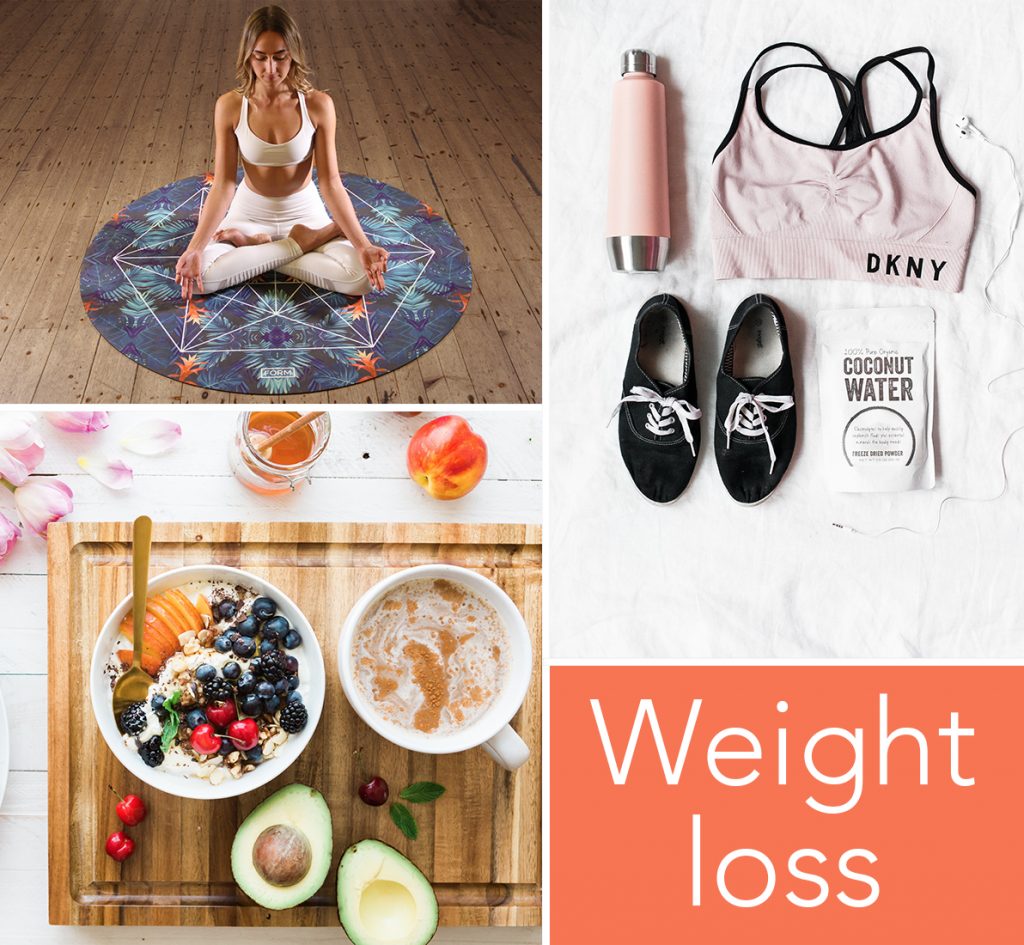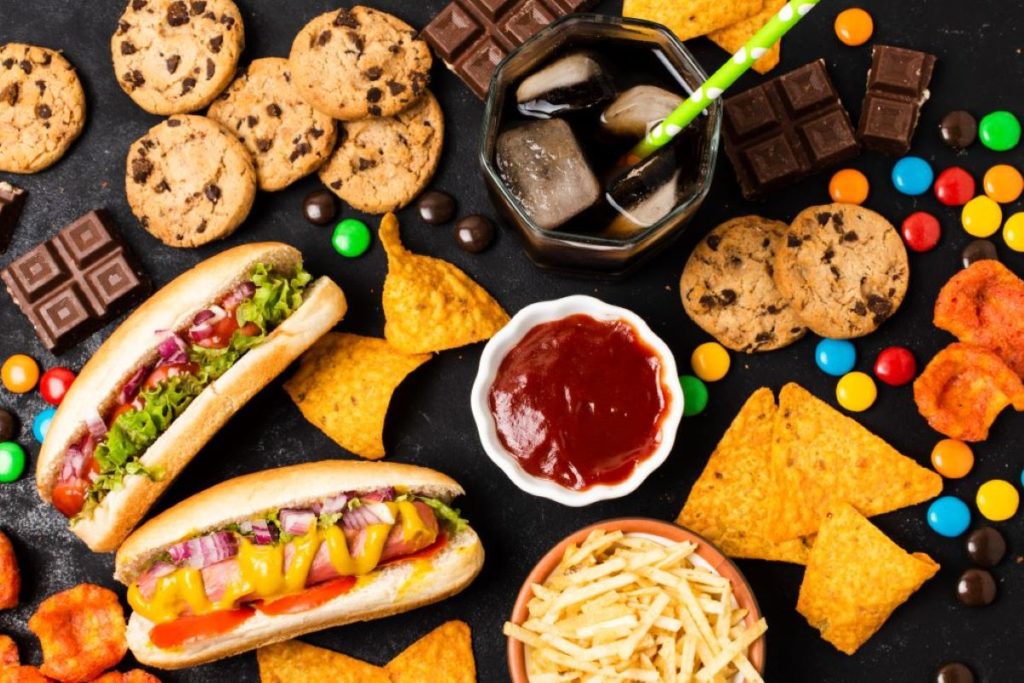PMS Top 10 food tips to reduce symptoms

Up to 75% of women will experience premenstrual syndrome (PMS) at some point in their reproductive years. Symptoms of PMS include mood swings, exhaustion, bloating, and cravings. As a specialised dietitian, I have personally witnessed the transformative power of nutrition in lowering PMS symptoms and enhancing quality of life.
It is commonly believed that avoiding foods and drinks like fat, chocolate, processed sugars, caffeine, fizzy minerals, and alcohol can make symptoms worse for those who consume them. Depending on your symptoms, health, and dietary habits, this may be beneficial. However, did you know that there are a variety of foods that are simple to include in your diet? These foods are not only perfect for people with PMS, but everyone can benefit from them!
Irritable Bowel Syndrome (IBS)- everything you need to know..

Struggling with bloating, cramps, or unpredictable bowels? You might be one of the millions affected by Irritable Bowel Syndrome (IBS). In this blog, expert Dietitian Gillian Killiner explains the causes, symptoms, and evidence-based strategies to manage IBS — including how personalised nutrition and lifestyle changes can help you take control of your gut health.
Traditional Foods for Easter and Their Meanings

Traditional Foods for Easter and their meanings
Diet and Eyesight :The Vital Connection

Today, I am going to explore a topic that’s often overlooked: the relationship between Diet & Eyesight. It is so important and I can’t believe I haven’t talked about it before! Your eyes are a windows to your overall health and can really impact your quality of life if you find yourself with an eye related health problem. Welcome if you are new here to 121 Dietitian. I’m Gillian Killiner, founder of 121 Dietitian, and I have been writing blogs for many years on various topics alongside my clinical work. So hopefully you will find some information relevant or interesting to you. Understanding the Basics – Diet & Eyesight So what does the eye do? The human eye is a complex organ. It works like a camera by capturing and processing light, which is then transformed into visual information that our brain can understand. Its well-being relies on a variety of nutrients to function optimally. These nutrients can be obtained through a balanced diet, and they play a crucial role in maintaining good eyesight throughout your life. So lets look first at foods that could impact negatively on your eye health: 1. Sugary Drinks Sugary fizzy drinks, energy drinks, sweet tea, and lemonade, high fructose syrups. These beverages are often loaded with sugar, and excessive sugar consumption can increase your risk of developing type 2 diabetes and heart disease. These conditions, in turn, can lead to eye problems like diabetic retinopathy and age-related macular degeneration (AMD). Just to put things in perspective, a single soft drink can contain a whopping 37 grams of sugar! So, it’s wise to be mindful of how many sodas you consume daily. 2. Fish & Shellfish Fish and shellfish are generally considered healthy sources of protein and essential nutrients. However, they do contain small amounts of mercury. While this isn’t a major concern for most people, certain groups are more susceptible to health problems related to mercury exposure. This includes pregnant women, nursing mothers, and children. For these individuals, it’s recommended to limit fish intake to 2 portions per week to reduce the risk of eye damage. 3. Bread Products Bread products, such as white bread and pasta, are daily dietary staples for many of us. However, they contain simple carbohydrates that are digested quickly, leading to rapid spikes in blood sugar levels. This can contribute to chronic inflammation, a condition linked to AMD. If you’re worried about the impact of bread products on your eye health, consider limiting your consumption and exploring whole-grain alternatives. 4. Prepackaged Foods Prepackaged foods are convenient but often not healthy and frequently contain high levels of sodium, which can lead to high blood pressure. Elevated blood pressure, can damage your retina and result in a condition known as hypertensive retinopathy. To reduce your sodium intake, look for “low sodium” labels on canned goods, soups, and sauces when food shopping, but more importantly rethink the amount you use of these products and consider how you can cook with natural ingredients when possible. 5. Processed Meat Processed meats like bacon, deli meats, sausages are loved by many but can be high in sodium as well. Beyond contributing to hypertensive retinopathy, excessive sodium intake can cause choroidopathy, characterized by fluid buildup under the retina, and neuropathy, which can lead to blockages in blood flow. So the message here is to watch your salt and sugar intake as this can go a long way in preserving your eye health. So what can you eat instead? Thankfully there is an abundant variety of foods and fluids that can assist and nourish the eyes. Key Nutrients for Healthy Eyes Preventing Age-Related Eye Conditions: Consuming a diet rich in antioxidants, such as vitamins C and E, can help protect your eyes from the oxidative stress associated with aging and reduce the risk of cataracts and AMD. Maintaining Eye Moisture: Omega-3 fatty acids help keep your eyes moist and reduce the risk of dry eye syndrome, which can be uncomfortable and affect your vision. Enhancing Night Vision: Adequate intake of vitamin A ensures your eyes can adapt to low-light conditions, which is crucial for night vision. Shielding Against Harmful Light: Lutein, zeaxanthin, and beta-carotene act as natural filters, protecting your eyes from harmful ultraviolet (UV) and blue light. Promoting Eye Tissue Health: Nutrients like zinc support the health of eye tissues and may reduce the risk of conditions like macular degeneration. Conclusion – Diet & Eyesight Our eyes are invaluable, and protecting our vision should be an integral part of our daily life. A diet rich in the right nutrients can play a pivotal role in maintaining and safeguarding eyesight. By incorporating foods rich in vitamins A, C, E, omega-3 fatty acids, zinc, and carotenoids into your daily meals, you are investing in the long-term health of your eyes. At 121 Dietitian, we understand the importance of nutrition in promoting overall well-being, including eye health. If you’d like personalized guidance on optimizing your diet for better eyesight or any other nutritional concerns, don’t hesitate to reach out. Remember, a nutritious diet isn’t just about looking good; it’s about seeing the world around you safely for years to come. If you want to book your programme TODAY we would love to help you. You can book a 121 Dietitian Programme today by clicking on the link below CONTACT TODAY Vitamin A: This is perhaps the most well-known nutrient for eye health. Vitamin A helps maintain the health of your cornea, the outermost layer of your eye. A deficiency in vitamin A can lead to night blindness and other vision problems. Vitamin A is found as retinol in meats, dairy, eggs and Beta-carotene in fruits and vegetables. Vitamin C: Found in fruits and vegetables like oranges, strawberries, and bell peppers, vitamin C supports the blood vessels in your eyes and can help prevent cataracts and age-related macular degeneration (AMD). Vitamin E: Nuts, seeds, and leafy greens are rich sources of vitamin E, which is known for its antioxidant properties. Antioxidants
Weight Loss – are you struggling?

The Complexities of Weight Loss: Hormonal, Stress-related, Dietary, and Exercise Factors In the quest for successful weight loss, numerous factors can act as barriers, hindering progress and leading to frustration for many individuals. As experienced Registered Dietitians, we understand that weight management is not simply about counting calories. Rather, it involves a deeper understanding of the intricate interplay between hormones, stress, diet, and exercise. In this blog, we will touch on the reasons why some people struggle to lose weight successfully, exploring the complexities that underlie this challenge. Weight loss and Hormonal Imbalances Hormones play a pivotal role in regulating various bodily functions, including metabolism and appetite. Several hormonal imbalances can negatively impact your weight loss efforts. For instance: a) Insulin resistance: Insulin is a hormone that regulates blood sugar levels. When cells become resistant to insulin, it becomes harder for the body to process glucose efficiently, leading to weight gain and a potential risk of developing type 2 diabetes and resistant weight loss. b) Leptin and Ghrelin: Leptin is responsible for signaling satiety, while ghrelin stimulates hunger. Hormonal disruptions in this delicate balance can result in overeating and a decreased ability to feel full, making weight loss a challenge. c) Thyroid disorders: An underactive thyroid (hypothyroidism) can lead to a slowed metabolism, making weight loss more difficult. Gillian herself has no thyroid function and overcame her issues with her nutrition, medical knowledge, and research (Gillian’s Story). Stress and Cortisol in Weight Loss Chronic stress triggers the release of cortisol, commonly known as the “stress hormone.” Elevated cortisol levels can contribute to weight gain, particularly around the abdominal area. We see this in so many patients who just can’t switch off at night but have ongoing fatigue. Emotional eating triggered by stress or seeking comfort can result in overeating, hindering weight loss progress and fueling a cycle of dissatisfaction and anxiety about losing control. Poor Diet Choices A diet lacking in essential nutrients and filled with processed foods, high in refined sugars, and unhealthy fats can sabotage weight loss goals. Interestingly those who have been a slave to the sugar-free, fat-free food camp can also be impacted with weight gain instead of weight loss. Such diets often fail to provide the body with the necessary nutrients for optimal metabolism and energy levels. Poor diet can change gut bacteria negatively and impact the gut-brain connection. Additionally, fad diets that promise rapid weight loss tend to be unsustainable. They can lead to a cycle of weight regain and feelings of guilt, failure, and misery. Weight Loss and Lack of Exercise Physical activity is a critical component of successful weight loss. Regular exercise not only helps burn calories but also boosts metabolism, preserves lean muscle mass, and enhances overall mood and well-being. A sedentary lifestyle, on the other hand, can contribute to weight gain and exacerbate hormonal imbalances. Paying a large sum of money for a personal trainer or gym membership is actually not necessary. Engaging in free activities that are easy to do regularly is much more beneficial than pushing oneself to the limit at odd hours of the day, risking injury or being unable to sustain the routine due to time constraints, fatigue, or financial limitations. Underlying Medical Conditions As discussed in my last blog certain medical conditions, such as polycystic ovary syndrome (PCOS) and Cushing’s syndrome, can impact weight management. Addressing these conditions by working with a Dietitian and a medical specialist is vital for successful and sustained weight loss. Weight loss and Emotional and Psychological Factors Weight loss is not solely physical but also an emotional and psychological journey. Past traumas, low self-esteem, and negative body image can influence behaviours related to food and exercise. Believing in your worthiness and capability to tackle these issues with the guidance of a dietitian, along with addressing any psychological factors through counseling or therapy if necessary, can promote long-lasting weight loss success. Conclusion As registered Dietitians, we understand that successful weight loss goes beyond a one-size-fits-all approach. Hormonal imbalances, stress, the wrong messages in the media or by well-meaning friends and family, poor dietary choices, and a lack of exercise can all act as barriers on the road to achieving weight loss goals. Recognizing the complexity of these factors and tailoring interventions to suit individual needs is crucial for promoting long-term success. 121 Dietitian have helped thousands turn their lives around. We work with you as an individual and treat you like a puzzle, piecing you back together. We truly love educating, supporting, and providing a holistic approach to health and well-being to create a healthier, happier, and more sustainable weight loss journey. So, what to do next or for anything else.. If you’re seeking support for weight loss, dietary health, or any other concerns, we’re here to help. Whether you want to improve eating habits, design a nutrition plan, or address hormonal health or sugar addiction, we’ve got you covered. If you’re unsure about the right program to choose, please reach out. We’re eager to assist you, your family, or friends with any nutrition-related questions, no matter how big or small. If you want to book your programme TODAY we would love to help you. You can book a 121 Dietitian Programme today by clicking on the link below Please share this blog with your family and friends on your social media channels. Do visit our YouTube Channel for more on keeping your health optimal. If you are interested in how I overcame my Thyroid Autoimmune Condition do check out the About section below Before you go please check out our 121 Dietitian Shop created specifically for optimising your health. Gillian x
The Negative Impact of Ultra-Processed Foods on Your Health

Ultra-processed foods and what you need to know. In today’s fast-paced world, convenience often takes precedence over nutrition and that happens to us all. Unfortunaltey ultra-processed foods have become a staple in many people’s diets, offering quick and easy solutions for busy lifestyles. These foods can have detrimental effects on our health and well-being. As a dietitian with 26 years of experience, I have witnessed the growing consumption of ultra-processed foods and its impact on individuals. In this blog, we will explore the negatives of ultra-processed foods and understand why they should be minimized in our diets. Ultra-Processed foods – what are they? The NOVA food classification system, developed by researchers from University of São Paulo in Brazil, is where the phrase ‘ultra-processed foods’ originates from. The food products are classified into four groups depending on the extent of processing they have undergone during their manufacturing: Unprocessed or minimally processed foods are those that have undergone minimal or no alteration and contain no added ingredients. This includes fruits, vegetables, milk, fish, pulses, eggs, nuts and seeds in their natural state. 2. Processed ingredients Processed ingredients are used to enhance the flavour of certain foods, such as salt, sugar and oils. These ingredients are usually not consumed by themselves, but rather combined with other foods for added flavour. 3. Processed foods Processed foods are food items which are derived from groups 1 and 2, and modified in a way that one can replicate at home. Examples of such foods include making jams, pickles, canned fruits, veggies, making breads, cheeses. 4. Ultra-Processed foods Ultra-processed foods usually contain more than five components and ingredients that aren’t common in home cooking. These can include preservatives, emulsifiers, sweeteners, synthetic colours & flavours. Due to their additives, these food items are able to maintain their shelf life for an extended period of time. Examples of Ultra-Processed Foods Ultra-processed foods include ham, sausages, frozen waffles, nuggets, crisps, pizza, mass-produced bread, breakfast cereals, biscuits, carbonated drinks, fruit-flavoured yogurts, instant soups, icecreams and frozen desserts Unprocessed or minimally processed foods Fruit, vegetables, eggs, meat and grains. Processed culinary ingredients Sugar, salt, butter, lard, oils, vinegar Processed foods Freshly made, unpackaged bread, tinned fruits and vegetables, salted nuts, ham, bacon, tinned fish and cheese So why worry about Ultra-Processed Foods? Research on Ultra-Processed Foods Studies from the University of Sao Paulo in Brazil have found that excessive UPF intake (more than 56.8 per cent of the diet) increases the risk of type 2 diabetes, cardiovascular disease and cancer. In 2019, a study published in The BMJ found that people who ate a lot of UPFs (more than four servings a day) were at a 62 per cent greater risk of premature death from all causes than those with a low consumption. For each individual serving of UPF, the risk of death increased by 18 per cent. Conclusion While ultra-processed foods offer convenience and ease, it is important to recognize their negative impact on our health. As a dietitian, I encourage individuals to prioritize whole, minimally processed foods in their diets. By focusing on fresh fruits, vegetables, lean proteins, whole grains, and healthy fats, we can optimize our nutrient intake, support overall well-being, and reduce the risk of chronic diseases. Remember, small changes in our dietary choices can have a significant impact on our health in the long run. So, what to do next or for anything else.. If you are needing help with your diet and health, wanting to reduce Ultra Processed foods in your diet or anything else… we can assist you with this. Maybe you wish to change your eating habits, stop tracking or need help optimising the foods you eat and are not sure what programme to select, please do contact us. We would love to help you or your family and friends with any nutrition-related queries big or small. If you want to book your programme TODAY we would love to help you. You can book a 121 Dietitian Programme today by clicking on the link below If you have enjoyed this blog we would love you to share this with your family and friends on your social media channels. Do visit our YouTube Channel for more on keeping your health optimal. If you are interested in how I overcame my Thyroid Autoimmune Condition do check out the About section below Before you go please check out our 121 Dietitian Shop created specifically for optimising your health. Gillian x